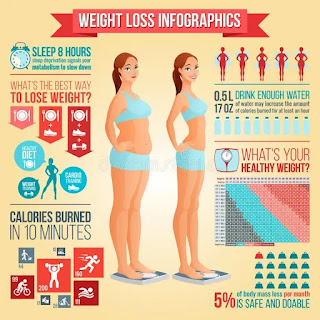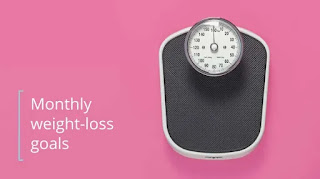How Much Weight Can You Lose in a Month?
Losing weight can be a challenging and complex process. The amount of weight that you can expect to lose in a month depends on a variety of factors, such as your starting weight, diet, exercise habits, and overall health. Here's what you need to know about how much weight you can lose in a month.1. Understanding Safe and Sustainable Weight Loss
It's important to approach weight loss with realistic expectations. While it's possible to lose a significant amount of weight in a short period of time, this type of rapid weight loss is often not sustainable and can be detrimental to your health. Safe and sustainable weight loss is generally considered to be around 1-2 pounds per week, or 4-8 pounds per month.
2. Factors that Affect Weight Loss
The amount of weight you can expect to lose in a month can be influenced by a variety of factors, such as:
- Starting weight: People who are overweight or obese may be able to lose more weight than those who are already at a healthy weight.
- Diet: Eating a healthy, balanced diet that is low in calories can help you lose weight.
- Exercise: Regular exercise can help you burn more calories and lose weight.
- Age: Older adults may have a harder time losing weight than younger adults.
- Health conditions: Certain health conditions, such as thyroid problems or hormonal imbalances, can make it harder to lose weight.
3. Strategies for Successful Weight Loss
If you're looking to lose weight, here are some strategies that can help you achieve your goals:
- Set realistic goals: Focus on losing a small amount of weight each week, rather than trying to lose a large amount of weight quickly.
- Keep a food diary: Tracking what you eat can help you identify areas where you can make changes to your diet.
- Exercise regularly: Aim to get at least 30 minutes of moderate exercise most days of the week.
- Get support: Consider working with a registered dietitian or personal trainer to help you achieve your weight loss goals.
- Be patient: Weight loss is a gradual process, and it's important to be patient and stick with it.
4. When to Seek Professional Help
If you're struggling to lose weight, it may be time to seek professional help. Talk to your doctor or a registered dietitian for guidance on safe and effective weight loss strategies. They can also help you identify any underlying health issues that may be contributing to your difficulty in losing weight.
 |
5. Who Should Not Take Ozempic?
Ozempic may not be appropriate for everyone, including:
- People with a history of thyroid cancer
- People with a personal or family history of medullary thyroid carcinoma (MTC)
- People with severe gastrointestinal disease
- People with a history of pancreatitis
If you are unsure if Ozempic is right for you, consult with a healthcare professional before starting.
6. The Role of Intermittent Fasting in Weight Loss
Intermittent fasting is a popular approach to weight loss that involves alternating periods of fasting and eating. While the amount of weight you can expect to lose with intermittent fasting depends on several factors, such as your starting weight and the type of fasting plan you follow, research suggests that this approach can be effective for weight loss.
One study published in the International Journal of Obesity found that people who followed an alternate-day fasting plan for 12 weeks lost an average of 7.7 pounds, while those who followed a daily calorie restriction plan lost an average of 5.3 pounds. Another study published in the Journal of Translational Medicine found that people who followed an intermittent fasting plan lost more weight and body fat than those who followed a standard calorie restriction plan.
However, it's important to note that intermittent fasting may not be suitable for everyone, particularly those with certain health conditions, such as diabetes. It's important to talk to your doctor before starting an intermittent fasting plan.
7. Other Factors That Can Affect Weight Loss
In addition to diet and exercise, there are several other factors that can affect your weight loss progress. For example, stress, lack of sleep, and certain medications can all impact your ability to lose weight.
Stress can increase levels of the hormone cortisol, which can lead to weight gain and difficulty losing weight. Lack of sleep can also disrupt hormones that regulate appetite and metabolism, making it harder to lose weight.
Certain medications, such as antidepressants and antipsychotics, can cause weight gain as a side effect. If you're taking medications that are impacting your weight loss progress, talk to your doctor about possible alternatives.
8. Conclusion
In summary, the amount of weight you can expect to lose in a month depends on several factors, including your starting weight, diet, exercise habits, and overall health. While rapid weight loss may be tempting, it's important to approach weight loss with realistic expectations and to focus on safe and sustainable strategies. If you're struggling to lose weight, don't hesitate to seek professional help.
9. FAQs
- Can I lose weight without counting calories?
- How much exercise do I need to do to lose weight?
- Is it possible to lose weight while still eating carbs?
- What are some healthy snacks I can eat while trying to lose weight?
- How can I avoid gaining weight back after losing it?




.jpg.webp)





.png)


.png)

.png)
0 Comments